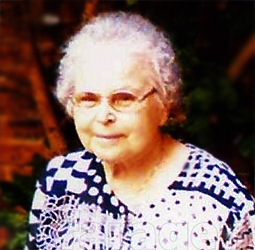The process of making good yogurt is similar to the one of raising a beautiful baby – it is that delicate. This is what Engineer Maria Stefanova-Kondratenko claims. Have you ever thought of the difference between the Bulgarian and European yogurt? ‘The Europeans simply couldn’t reach the quality of the original Bulgarian thing and that was why they named theirs yogurt. The starter is the main difference, which has reached these days through selection. For thousands of years Bulgarian farmers have worked on the microflora of yogurt without realizing their own selection and the symbiosis between the lactobacillus bulgaricus and streptococcus thermophiles bacteria. This is where the dietetic and healing secrets of the product are hidden. The Bulgarian yogurt improves the gastrointestinal microflora, especially through antibiotic treatments, it is good in case of cancer, stomach and liver issues, immune deficiency etc. It is not a coincidence that the Bulgarian bacteria is included in the probiotics, wanted around the globe,’ Maria Kondratenko explains. The original Bulgarian yogurt contains certain amount of live microflora up till the end of its expiration term and has no stabilizers, emulsifiers, synthetic sweeteners, coloring agents, preservatives and antibiotics as additives.
In 1973 the scientific team, headed by Maria Kondratenko created the first method for scientific extraction of symbiotic starters for the needs of the industrial farming. ‘The symbiotic starters are made in the laboratory, but they are close to the natural ones,’ Kondratenko says. She was the one who established and headed for 25 years the National Laboratory with the Dairy Industry State Company – up till her retirement in 1989.
 "Bulgarian starters have been exported through the years, in order to help them create their own cultures. However, the difference is major," Kondratenko claims. "The West couldn’t reach the product, eaten by the Bulgarians on an everyday basis. The microflora is the same, but the symbiosis is missing. They added sugar and odors, in order for the yogurt to be consumable."
"Bulgarian starters have been exported through the years, in order to help them create their own cultures. However, the difference is major," Kondratenko claims. "The West couldn’t reach the product, eaten by the Bulgarians on an everyday basis. The microflora is the same, but the symbiosis is missing. They added sugar and odors, in order for the yogurt to be consumable."
A few months ago three major producers of dairy products required changes in the regulated standard of Bulgarian yogurt. They wanted a change in the ratio of the two main strains – the 1905-identified (by Dr. Stamen Grigorov) lactobacillus bulgaricus and streptococcus thermophiles, in favor of the second one. That would result in slightly less sour taste of the product, but would boost its duration period. The proposal faced the strong opposition of both consumers and the ministry of agriculture. They say that this would legitimate the exchange of yogurt’s microbiology and would lead to the replacement of the unique Bulgarian product. The standard remains, after sharp debates.
Maria Kondratenko resents – no one looked for the opinion of the standard’s establishers during the discussions for its changing. "The two microorganisms must live in symbiosis in a starter – this means full mutual support. Any change of the ratio ruins the symbiosis and there is no yogurt without it," she says and adds:
"Back in those days I urged the whole team of the laboratory to start wandering across the mountains with the purpose of collecting natural starters from shepherds /yogurt was made by sheep milk only then/. We collected lots of microorganisms from across the country and then we faced a problem which helped us to reveal the secret of this unique product. At first one of the microorganisms would always kill the other. We realized that we had to combine them somehow. Out of 3,000 different combinations we succeeded in discovering only 7, where the symbiosis worked. Now everyone uses these combinations only," Maria Kondratenko says in conclusion.
English version: Zhivko Stanchev
The Bulgarian-Macedonian Association “Podkrepa” in Portland, Oregon, has extended an invitation to “Balkanalia”. This will be “a weekend filled with music and dance at the beautiful Angelos Campground on the Sandy River.” The event will take place from..
With each passing day, the church is becoming more beautiful and welcoming. This was written on their Facebook page by the Bulgarian Orthodox Church “St. Ivan Rilski” in Chicago, USA . “Anyone who can help is welcome! There is painting,..
2025 marks the 80th anniversary of the atomic bombing of the Japanese city of Hiroshima. Traditionally, as a sign of sympathy for the victims of the attack, every year only on August 6, the Bulgarian public can see a unique relic -..
Built in 1964, the fishing vessel Chavdar was sunk to the seabed at a depth of 30 metres off the Black Sea town of Sozopol . The operation, which lasted..
The Bulgarian-Macedonian Association “Podkrepa” in Portland, Oregon, has extended an invitation to “Balkanalia”. This will be “a weekend filled with music..
With each passing day, the church is becoming more beautiful and welcoming. This was written on their Facebook page by the Bulgarian Orthodox Church..

+359 2 9336 661
